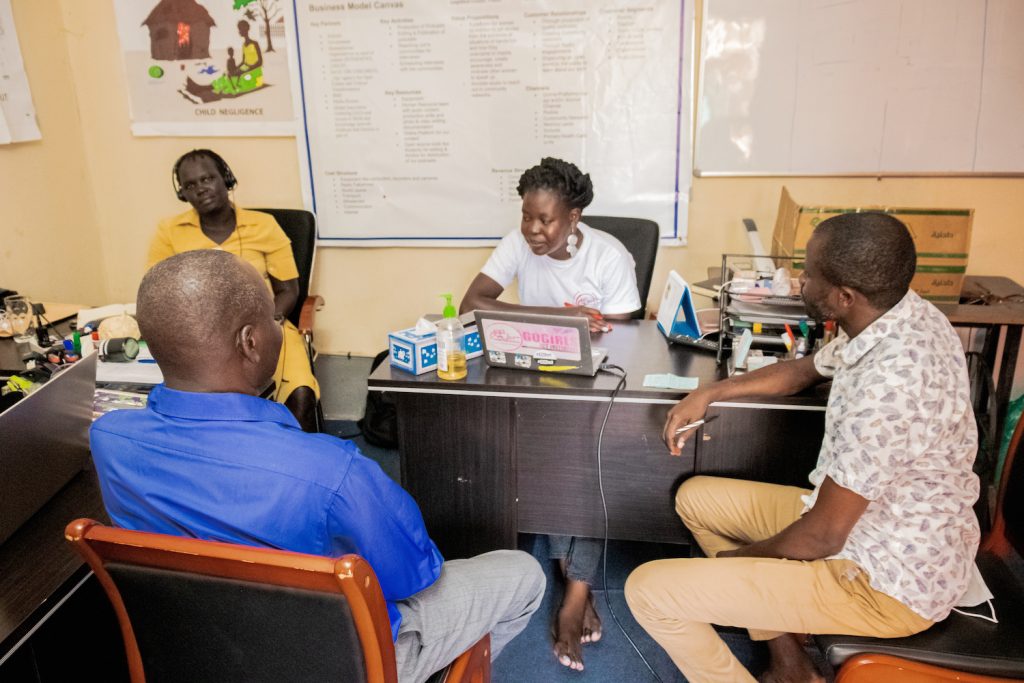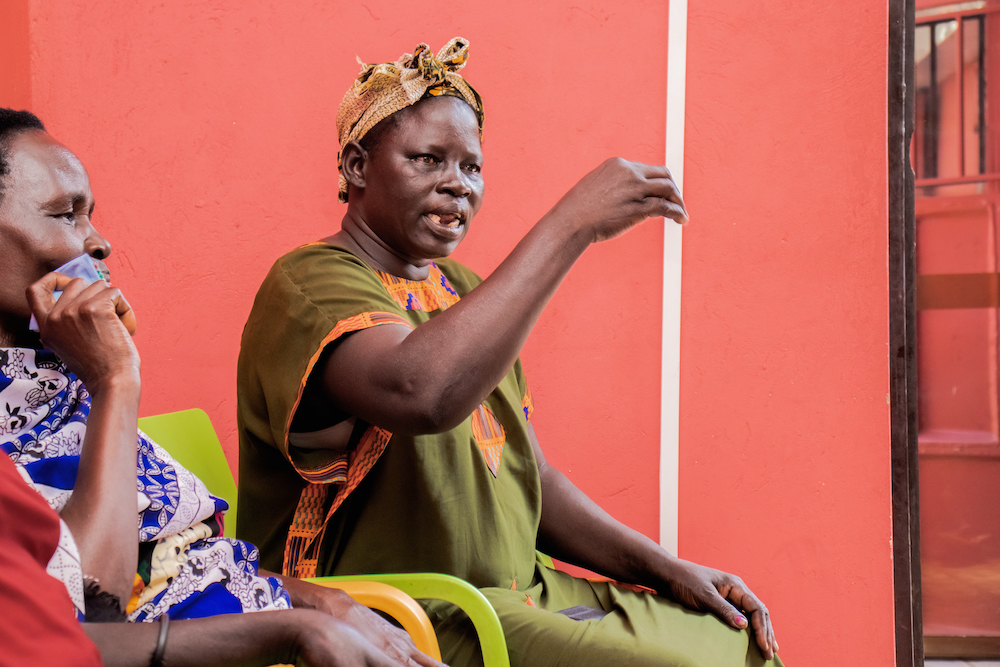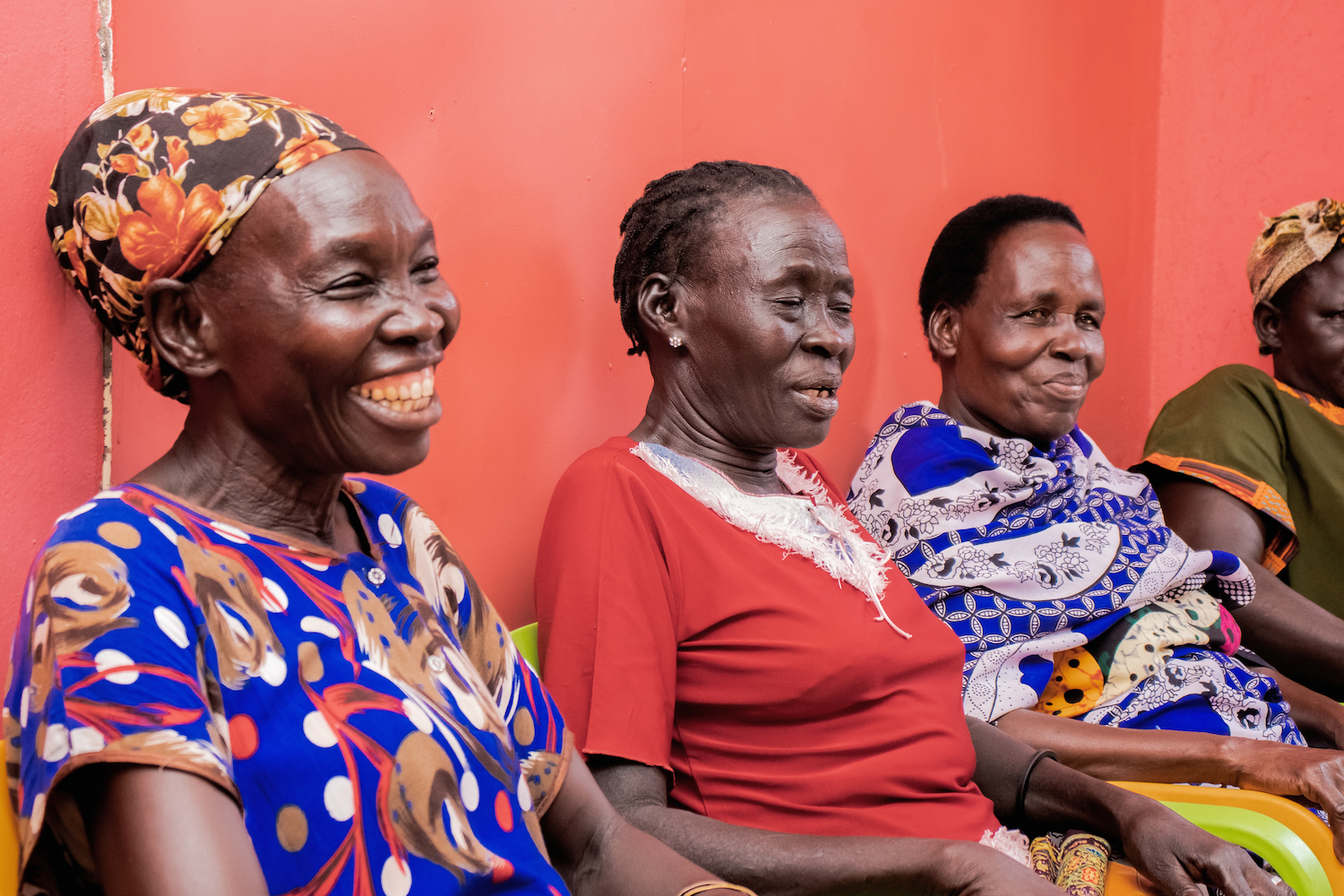South Sudan is a country that depends entirely on imports from its neighboring countries and during the pandemic, products such as hand sanitizers became more expensive as their demand was high and not affordable to the common person in the community. GoGirls inspiration to research and come up with a hand sanitizer called Gosanitize from locally sourced resources within South Sudan was because of the above challenges.
Ten female local brewers were trained to make highly concentrated alcohol (Ethanol) for use in the hand sanitizer.
To achieve this, GoGirls ICT Initiative team together with chemistry experts, had a peer-to-peer virtual mentorship exchange with Bibliothèque-MboaLab, Cameroon.
But alas! A hurdle.
To enable this project to succeed, they needed to overcome a major hurdle: religious beliefs and the extent to which women who make alcohol are viewed as contributors to the prevalence of hooliganism in the society. Not to be associated with a bad name in their society that taints their religious beliefs, some women have deserted the brewing business to do something considered noble by society.

During the workshop, the Gosanitize team hosted a team of religious leaders to talk to the brewers about their work and in this dialogue, religious leaders emphasized alcohol’s medicinal properties and symbolism dating back to the ancient Israelites. Reminding them of the nobility of their work and an opportunity for them to change the narrative about the production of alcohol as a business. The female brewers were therefore assured that making alcohol for sanitizer production was not unethical, since they are contributing to the social good of fighting COVID-19.
Safety considerations
Alcohol production for local consumption has always been part of their normal business. The local brewers have for a good number of years experience producing alcohol (for drinking) at their homes. But, since the kind of alcohol used for making hand sanitizers is highly flammable, an outbreak of fire or accidents could easily happen at home. To minimize such incidences, together with the local brewers, they put up Standards of Operation and safety precautions that will be shared by SSNBS (South Sudan National Bureau of Standards) for validation to be implemented by the brewers and the Gosanitize team.

Now let’s make some money 🙂
They also discussed how to make viable and sustainable business out of the product. Some of the considerations were:
– How to spread awareness to the population and attract consumers to buy the product.
– Quality control of the hand sanitizer by external validation that is sending the product to other Laboratories, outside South Sudan.
– Check the competition and suitability of the product in the market by carrying out regular assessments.
Read more about Gosanitize here



